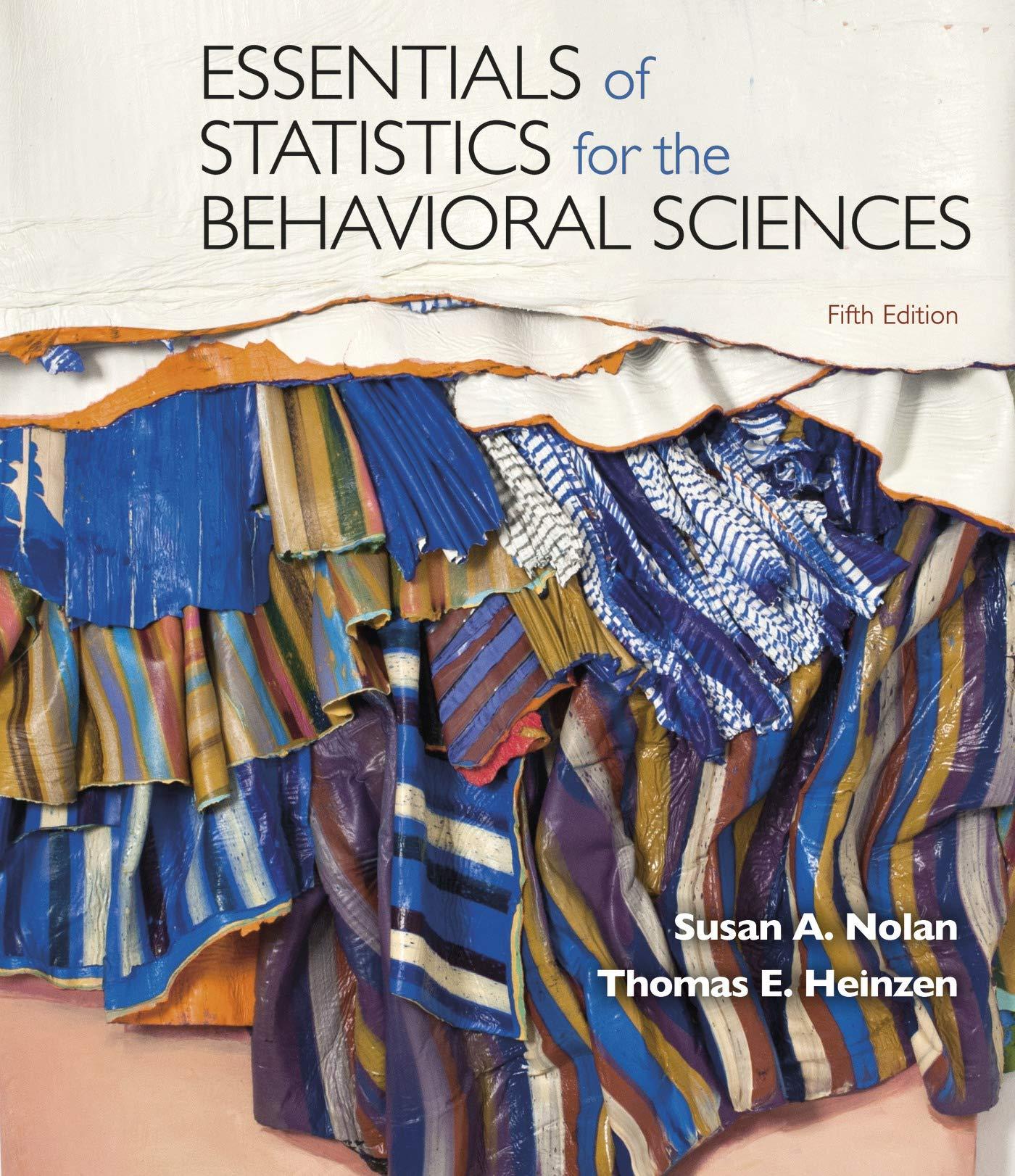9.45 Single-sample t test, military training, and anger: Bardwell, Ensign, and Mills (2005) assessed the moods of
Question:
9.45 Single-sample t test, military training, and anger: Bardwell, Ensign, and Mills (2005) assessed the moods of 60 male U.S.
Marines following a month-long training exercise conducted in cold temperatures and at high altitudes. Negative moods, including fatigue and anger, increased substantially during the training and lasted up to 3 months after the training ended. Mean mood scores were compared to population norms for three groups: college men, adult men, and male psychiatric outpatients. Let’s examine the anger scores for six Marines at the end of training; these scores are fictional, but their mean and standard deviation are very close to the actual descriptive statistics for the sample: 14, 12, 13, 12, 14, 15.
a. The population mean anger score for college men is 8.90. Conduct all six steps of a single-sample t test. Report the statistics as you would in a journal article.
b. Now calculate the test statistic to compare this sample mean to the population mean anger score for adult men (M = 9.20). You do not have to repeat all the steps from part
(a) but conduct Step 6 of hypothesis testing and report the statistics as you would in a journal article.
c. Now calculate the test statistic to compare this sample mean to the population mean anger score for male psychiatric outpatients (M = 13.5). Do not repeat all the steps from part
(a) but conduct Step 6 of hypothesis testing and report the statistics as you would in a journal article.
d. What can we conclude overall about Marines’ moods following high-altitude, cold-weather training?
e. For any findings for which you rejected the null hypothesis, explain how replication with another set of Marines might help to determine whether these findings might be a Type I error.
Step by Step Answer:

Essentials Of Statistics For The Behavioral Sciences
ISBN: 9781319247195
5th Edition
Authors: Susan A. Nolan, Thomas Heinzen






